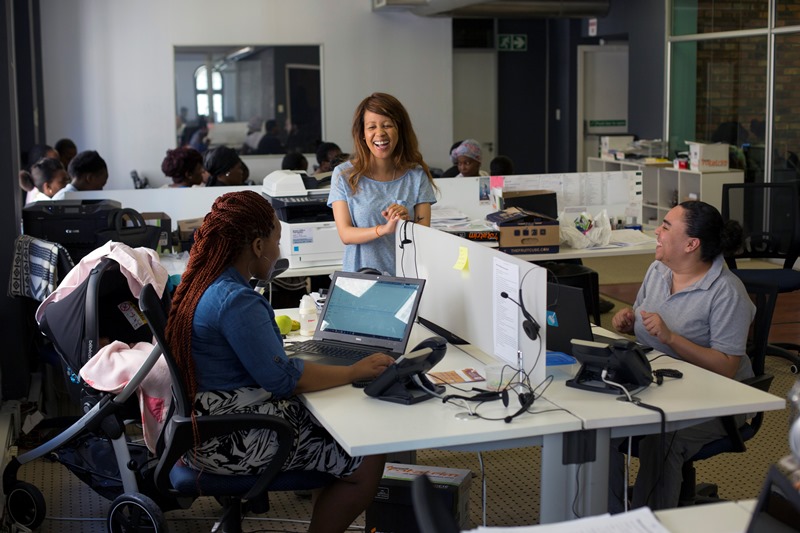NAIROBI, Kenya – The global dearth of women in business leadership is well known, and Africa is no exception. Across the continent, only 5 percent of chief executive officers are women – slightly higher than the global average of 4 percent – and women make up just 29 percent of senior management positions, according to a 2016 report by McKinsey & Company.
The picture is not much brighter further down the chain. A recent report on women’s entrepreneurship across the globe led by Babson College shows that sub-Saharan Africa enjoys high rates of entrepreneurship, but few women get the chance to participate due to a lack of formal funding sources.
Meanwhile, just five countries – Burkina Faso, Nigeria, Guinea, Madagascar and Zambia – currently have women leading their finance ministries.
Now, a new fund designed to support African women in business is hoping to turn these figures around. Set up by the U.N. Economic Commission on Africa (UNECA), U.N. Women, the African Union Commission and the African Women Leadership Network, and first announced in April, the African Women Leaders Fund will focus on boosting the growth of African women-led businesses and increasing women’s participation in investment.
Guided by African women fund managers, the plan is to invest up to $500 million in African women-led companies over the next decade. The fund’s backers expect that sum to turn into an additional $2 billion for the beneficiaries due to a process known as “crowding in”: when an increase in government spending leads to more private investment.
The goal, says Vera Songwe, executive secretary of the U.N. Economic Commission for Africa, is to address a significant gender imbalance in the fields of finance and investment.
“Women are less represented in many organizations, and very few are leaders in these organizations. This makes women less represented in key decision-making for the continent,” she says.
Examples of Success
The African Women Leaders Fund’s strategy will be to seek out emerging women asset managers and entrepreneurs who could have dramatically increased chances of success if they could only get a financial nudge. Those women will serve as examples of the potential they and their peers have if private investors are willing to give them the funding and operations support they need.

Vera Songwe, executive secretary of the U.N. Economic Commission for Africa, says the hope is that increasing women’s participation in the finance sector will raise their decision-making powers in everything from politics to education. (Christabel Ligami)
At least 65 percent of the capital will go to women-owned and women-led companies, with the rest going toward technical assistance, the part of the fund that will guide women entrepreneurs with capacity-building, leadership training, mentorship and business development – all the skills women entrepreneurs need to successfully manage growth and expansion.
Songwe says she hopes the fund will increase the number of women in areas such as financial management and planning, human resources, and investment. Ultimately, the idea is to prompt other investors to devote more capital and resources to women-led companies.
As African women entrepreneurs become more visible in the world of finance, that will contribute to the broader mission of increasing their roles across all aspects of African development, including politics, civil society, education, and science and technology, she adds.
A Long Time Coming
Flora Mutahi, founder and CEO of the Nairobi-based tea company Melvin Marsh International Limited, says the fund will be transformative for many women entrepreneurs who have trouble getting funding through traditional means. Banks often require collateral on loans, but only a fraction of women in Africa own major assets such as land or property.
She also notes that moves by various governments to cap interest rates can make banks more cautious – because lower interest rates mean it’s harder for them to get their money back on loans – and therefore less likely to lend to women.
“Many women are currently unable to access funding because of interest rate capping and the many security requirements that come along with a loan,” Mutahi says.
Most women in the private sector have long been pushing for a way to get funding to other women entrepreneurs without the stringent requirements banks insist on, Mutahi says. If the African Women Leaders Fund lives up to its promise, she says, that would be a big step toward leveling the playing field for businesswomen, giving them a fair chance to compete with men for resources and market access.
“African women lack the right peer network to support their businesses. We hope the fund will offer much-needed support to women to allow them to grow their businesses.”
